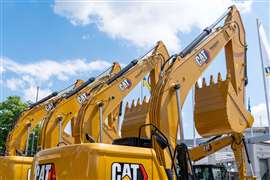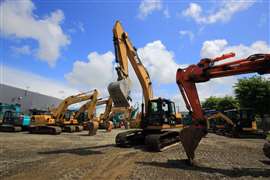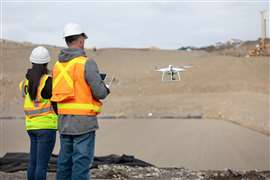Save green by going green
09 March 2009
The SC&RA Strategic Plan for 2009-2012 approved by the Association's Board of Directors last month included the objective: "Go Green with increased awareness and visibility for environmental issues." We intend to take this objective very seriously.
A concern for the environment should no longer conjure images of "tree huggers" who have little or no regard for capitalism. Companies of all sizes are learning that they can save green by going green.
For example, when Wal-Mart convinced the makers of Hamburger Helper to change its packaging, the redesign was the equivalent of taking 500 trucks off the road, saving nearly 900,000 pounds (400 tonnes) of paper fibre annually, reducing greenhouse emissions by 11% and opening up shelf space for other products in its stores.
That is one of the company's many small steps leading to big changes. As an international company based in the US, Wal-Mart is also making a difference in Argentina, Brazil, Canada, China, Costa Rica, El Salvador, Germany, Guatemala, Honduras, Japan, Mexico, Nicaragua, Puerto Rico, and the United Kingdom.
Like Wal-Mart, SC&RA is a member of the U.S. Environmental Protection Agency's SmartWay Transport Partnership. This innovative public-private initiative supports freight shippers, carriers and logistics companies in setting and achieving ambitious goals that increase fuel efficiency and reduce emission of greenhouse gases and air pollutants.
At least once a month, we have been including helpful suggestions from SmartWay in the weekly SC&RA Newsletter. Readers recently learned, for example, that automatic tyre inflation systems can extend tyre life by 8%, reduce fuel consumption by over 100 gallons annually for a typical combination truck and, potentially, eliminate more than one metric tonne of greenhouse gas emissions annually.
Related suggestions make sense too, of course, for members as they drive their personal vehicles. If you drive 12,000 miles (19,312 kilometres) a year, you could save about 16 gallons (60 litres) by keeping your car tyres properly inflated. In the United States alone, the gasoline savings could total 1.6 billion gallons (6 billion litres), equivalent to the total volume of ice cream produced in the US each year, according to the green book.
I recently received a copy of that 200-page paperback (printed on recycled paper, naturally) as a token of appreciation from a hotel that SC&RA had selected for a major meeting. Although the book certainly was intended to make recipients feel good about the hotel, at least one of the simple steps suggested could benefit the company financially: Use the same linens and towels in your hotel throughout your stay.
"You probably don't change your sheets and towels every day at home, so why do it while you're away?" noted the book. "The average hotel room consumes ... as much as your entire household typically uses in a day. Trimming the amount of water used by washing sheets and towels can save up to 40% of a hotel's water use."
Yet another entry explained that you could conserve up to five gallons (19 litres) of water a day simply by turning off the tap while you brush your teeth. In the US alone, that could add up to more water than is consumed every day in New York City.
Such water-saving advice would certainly meet the approval of Jean-Michael Cousteau, undersea explorer, author, film producer and son of the legendary Jacques Cousteau. SC&RA is proud to announce that Jean-Michael will be a featured speaker at the SC&RA 2009 Annual Conference, 21-25 April, at the La Quinta Resort, in Greater Palm Springs, California, US.
Through his presentation, The Business of Nature, he will inspire attendees with his commitment to preserving the environment and growing sustainable businesses. You can expect other presentations on related topics at key SC&RA meetings during the coming years as we help our members indentify practical ways to protect the environment while protecting their bottom line.






